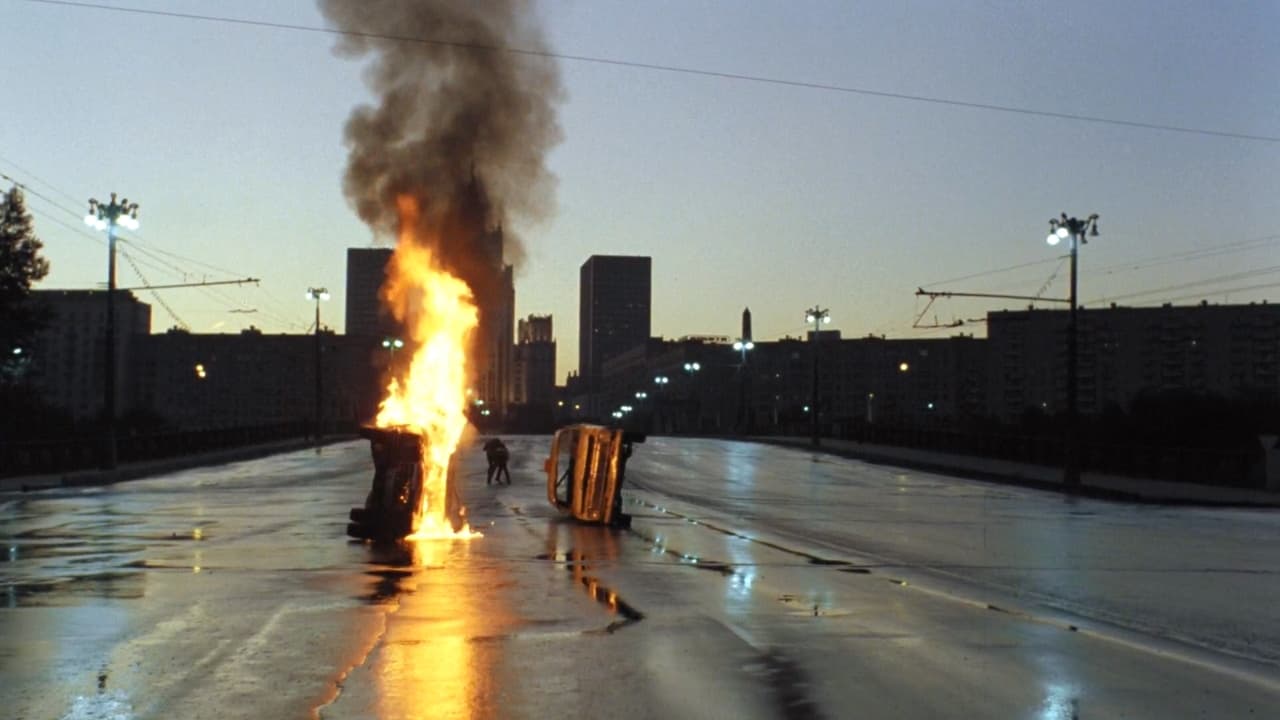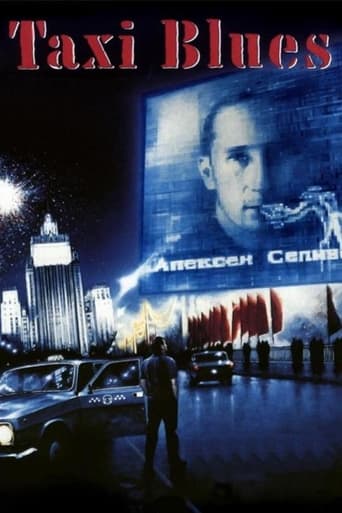



Terrible acting, screenplay and direction.
Such a frustrating disappointment
Amazing worth wacthing. So good. Biased but well made with many good points.
View MoreOne of the film's great tricks is that, for a time, you think it will go down a rabbit hole of unrealistic glorification.
View MorePLOT: Ivan,a hot headed taxi driver hunts down Lyosha, an alcoholic saxophonist who stifled his fare the day before. A love-hate friendship ensues but things change when an American producer helps Alyosha's career to take off. Taxi Blues(1991), started as a very interesting travelogue about 1990 Moscow but as the film delves towards the the crazy leads, it just started to fell apart. The story about the old vs the new felt very underdeveloped and somewhat too silly for its own good. It just lacks the subtext of the early scenes to keep me interested. In addition, it kinda offset the grandness of the beginning started to be lost in a milieu of unneeded craziness between Alyosha and Ivan. [2/5]
View MoreTaxi Blues tells of the antagonistic relationship between Shlykov and Lyosha, which begins when Lyosha fails to pay Shlykov the fare for his taxi ride. However, as the film continues they become friends of a sort. This changes when Lyosha finds fame with a famous American saxophone player and goes off to tour with him. When Lyosha comes back with no acknowledgment to Shlykov who has helped him, Shlykov is obviously hurt. The film ends with a car chase and subsequent crash and then gives an update on each of the main characters. This film was very interesting and bittersweet. There are many moments throughout the film where you can see the potential for a better friendship between Lyosha and Shlykov, but there is always something that happens which prevents this. The differences between Shlykov and Lyosha are immediately noticeable, as Shlykov is shown to be more a patriotic, stoic person while Lyosha is an alcoholic musician. These differences between them seem to illustrate the state people found themselves in during these uncertain times. Many people were disillusioned and uncertain of their political identity and you can definitely see this in Shlykov who struggles with Lyosha because he is a musician and more open to the West. The film also did an excellent job of showing Russian daily life during this time with the many scenes in Shlykov's apartment with the old man as his roommate. Taxi Blues is an insightful look into the mindset of many Russians during this time of political uncertainty, but is also entertaining in it delivery of that message.
View More*Please note: This review discusses many key events of the film, including the end. Do not read if you have not seen the movie!!!Taxi Blues is a film about control. It isn't, however, as simple as it initially seems. At the film's conclusion, the audience is left to ask, "Who's really controlling whom?"At the beginning of this film, Chlykov has complete control of his life. He manages his cab, and his side job of selling alcohol, with an iron fist and the facial expression to match. He is the master of his domain and no one in his or her right mind would dare to question his authority in any way.The problem is that Lyosha is not in his right mind. His life is careening out of control and he has one priority. Alcohol. From the minute that he requests his first bottle from Chlykov, their lives become irrevocably entangled. In the beginning, it is very clear where the power lies. As the film continues, however, it becomes harder and harder to tell who is controlling whom. Although he does not seem to realize it, Chlykov's life begins to revolve around the very man he seeks to reform. As a result, aspects of his own life start to slip from his control.For example, when Lyosha begins to seduce his girlfriend, Chlykov, in a desperate attempt to prove his authority, smashes Lyosha's saxophone and then engages Christina in an aggressive sexual act against her will. For those few minutes, Chlykov is free of his self-induced commitment to Lyosha. However, his freedom is short-lived. A few minutes later the phone rings and he is soon back at the jail to meet Lyosha, once again putting his own life on hold.By the end of the film, the roles have reversed. Lyosha gets his life together, at least temporarily, and is on top of the world as a beloved, world-renowned musician. Chlykov's life, however, is reminiscent of Lyosha's at the beginning of the film. He severs connections with his girlfriend, his friends and his once structured existence. It is no coincidence that in the last scenes of the film, Chlykov is in a speeding car, spinning wildly out of control.
View MoreIn his "Movie & Video Guide", Mr. Maltin (or one of his reviewers) writes of the musician in "Taxi Blues": "... the latter, who embodies the spirit of the oppressed Soviet artist-intellectual, plays his saxophone solos to block out the reality of his existence." It is true that the man sits in reveries, playing sax solos in his head, and is a brilliant musician. But it is more evident that he has a deep love affair with the bottle: the first time we see him, he is drunk; he goes to jail twice for his lubricated actions; he is homeless because his girlfriend threw him out over it; he has lost gigs due to his flaky behavior. In a nation of future AA members, Zaitchenko's character stands out because he has a talent, and is quickly destroying it. This is why the taxi driver is important; in his own crude way he tries to stabilize the drunk, and he is our window through which we see the sax player. We also get to see the outskirts of Moscow: the dump, seedy allyways, the brutalist apartment complexes, grimy little jails with rebar for cell bars. Truly a time capsule of Muscovite life before everything ended.
View More